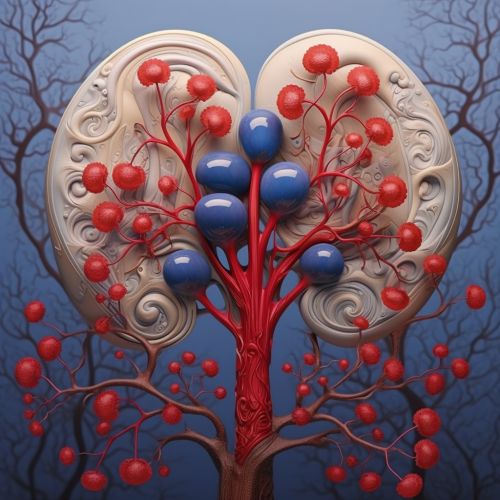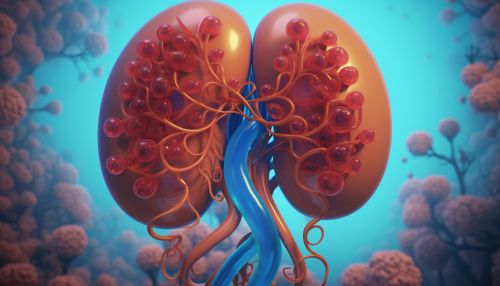Glomerulonephritis
Overview
Glomerulonephritis is a group of diseases that injure the part of the kidney that filters blood (called glomeruli). Other terms you may hear used are nephritis and nephrotic syndrome. When the kidney is injured, it cannot get rid of wastes and extra fluid in the body. If the illness continues, the kidneys may stop working completely, resulting in kidney failure.
Causes
Glomerulonephritis can be caused by specific problems with the body's immune system. Often, the exact cause of this condition is unknown. Damage to the glomeruli causes blood and protein to be lost in the urine. The condition may develop quickly, and kidney function is lost within weeks or months (called rapidly progressive glomerulonephritis). A quarter of people with chronic glomerulonephritis have no history of kidney disease.
The two types of glomerulonephritis are described below.
Acute Glomerulonephritis


While the exact cause of this condition is unknown, it is often preceded by an infection, such as a throat infection caused by streptococcus bacteria or a skin infection caused by staphylococcus bacteria. Other potential causes include viral infections such as HIV/AIDS, hepatitis B, and hepatitis C.
Chronic Glomerulonephritis
Chronic glomerulonephritis can come on gradually without a history of symptoms. The patient may have the following symptoms of kidney damage: blood in the urine (dark, rust-colored, or brown urine), foamy urine, and swelling in the face, eye sockets, lower legs, hands, ankles, and around the heart (pericardial effusion).
Symptoms
The symptoms of glomerulonephritis depend on whether it's the acute or chronic form of the disease, and the cause of the disease. Some people may have no symptoms (asymptomatic). Others may have symptoms of fluid overload such as swelling and shortness of breath.
Other possible symptoms include:
- Blood in the urine (making the urine appear dark, tea-colored, or cloudy)
- Decreased urine output (little or no urine may be produced)
- Swelling of the face, eye sockets, legs, arms, hands, feet, abdomen, or other areas
- High blood pressure
Diagnosis
The diagnosis of glomerulonephritis is often suspected on the basis of a person's medical history and symptoms. The diagnosis is usually confirmed by a kidney biopsy. In this test, a small piece of the kidney is removed and examined under a microscope for signs of damage or disease. Other tests used to diagnose this condition may include:
- Blood tests to measure kidney function, look for signs of anemia (a common problem in people with kidney disease), and measure levels of substances such as albumin, cholesterol, and electrolytes.
- Urine tests to check for blood and protein in the urine and to measure the urine's concentration.
- Imaging tests such as ultrasound or CT scans to look at the size and structure of the kidneys.
Treatment
Treatment aims to control the symptoms, limit damage to the kidneys, and treat any underlying conditions that may be causing glomerulonephritis.
Medications may include:
- Blood pressure medications to control high blood pressure, which is common in people with glomerulonephritis. These drugs may also help reduce protein loss in the urine.
- Diuretics to help the body get rid of excess fluid and salt, which can help control blood pressure and reduce swelling.
- Immunosuppressive drugs to slow the body's immune response and limit inflammation in the kidneys.
In severe cases, treatment may also include:
- Plasmapheresis, a procedure that removes and replaces the patient's blood plasma to remove harmful antibodies from the blood.
- Dialysis, a treatment that filters waste and excess fluid from the blood when the kidneys are not able to do so.
- Kidney transplant, a procedure that replaces a damaged kidney with a healthy one from a donor.
Prognosis
The prognosis for glomerulonephritis depends on the cause of the disease, the severity of kidney damage, and the patient's response to treatment. Some people may recover normal kidney function, while others may have persistent proteinuria (protein in the urine) and/or hematuria (blood in the urine). In some cases, glomerulonephritis can lead to chronic kidney disease and kidney failure.
